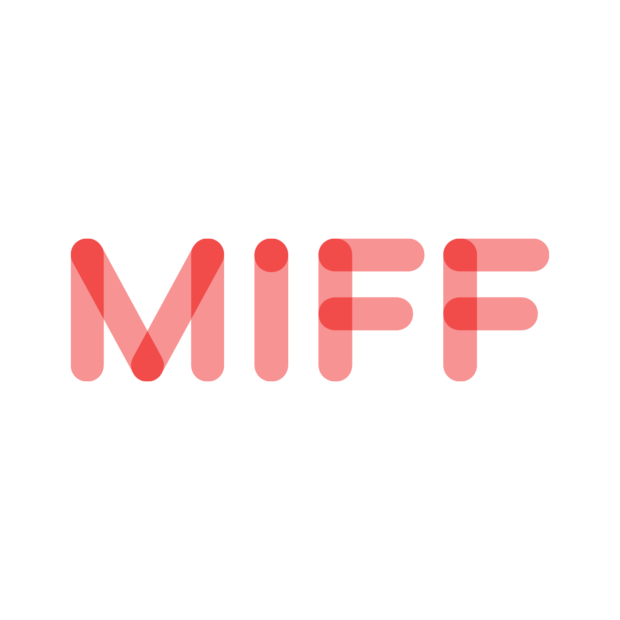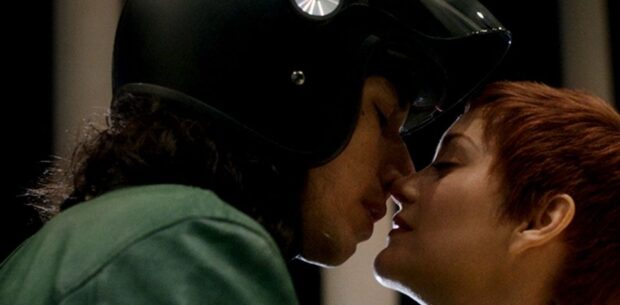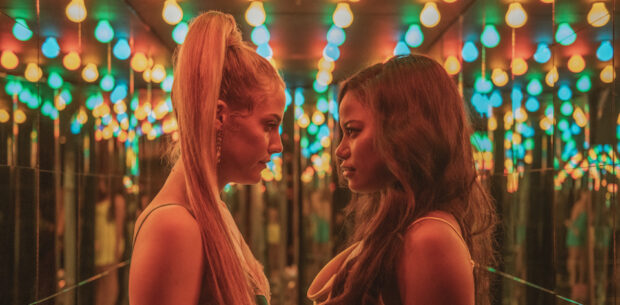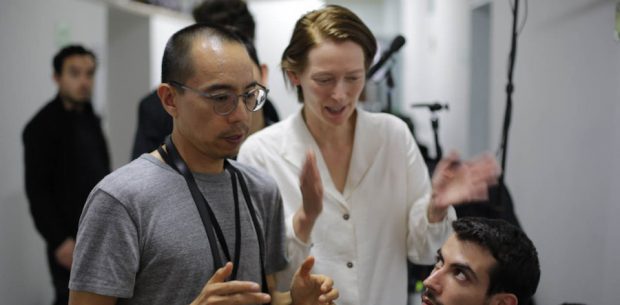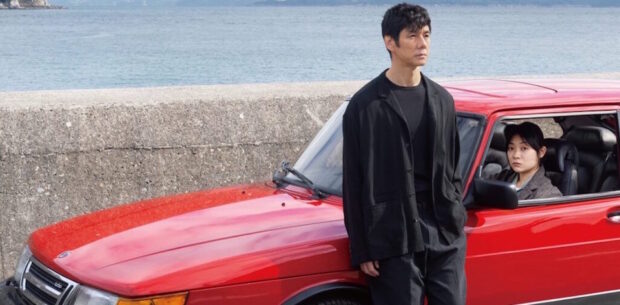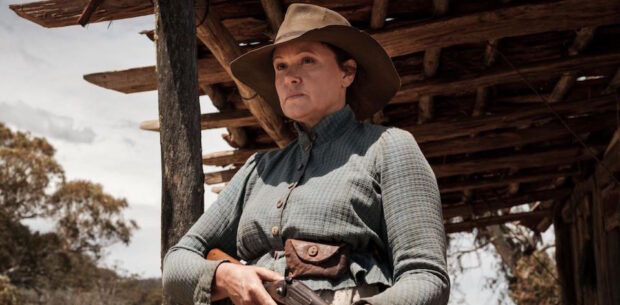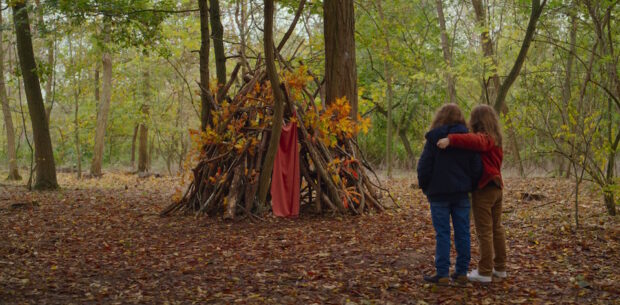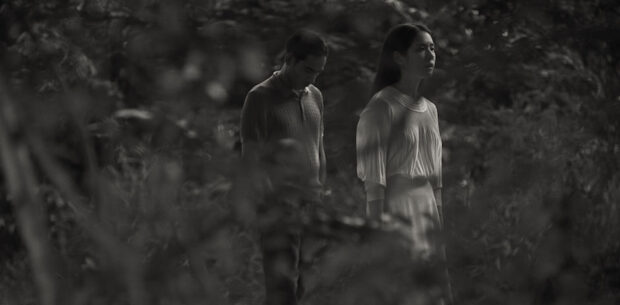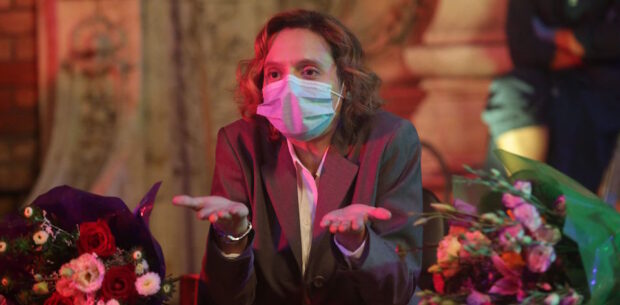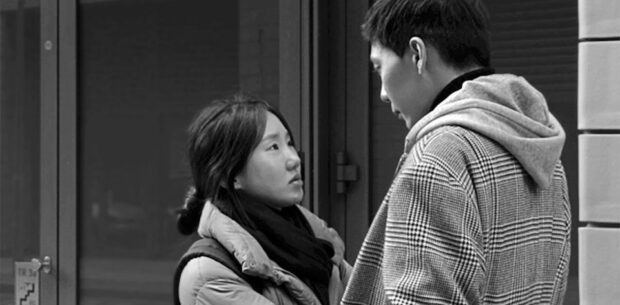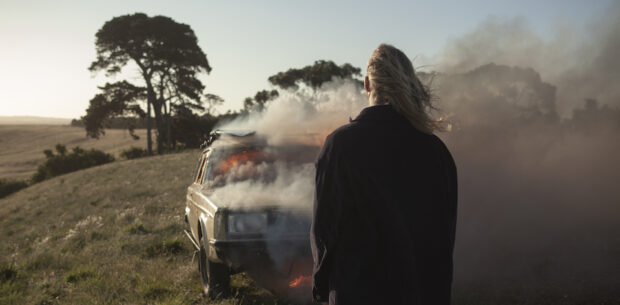Following the 68½ edition in 2020, the Melbourne International Film Festival (MIFF) is back for a 69th edition this August. Running in hybrid mode, the face-to-face screenings will kick-off from 5-15 August followed by a selection of films from 14-22 August on MIFF Play, the festival’s online screening platform.
Announcing its full program today, the complete slate includes 199 feature films, 84 shorts and 10 XR experiences. There’s 40 world premieres — the most in the festival’s history — and 154 Australian premieres. MIFF Play will showcase 62 films for audiences at home and those unable to travel. Showcasing everything from a satirical film featuring explicit porn to a Howard the Duck 70mm Special Screening, we’re not sure at this point which will have more walkouts.
The festival opens with Leah Purcell’s amazing The Drover’s Wife: The Legend of Molly Johnson, an adaptation of her original play. Headliners and gala screenings come straight from Cannes and Berlin, and include Leos Carax’s highly anticipated musical Annette, Justin Kurzel’s controversial Nitram (a film on the 1996 Port Arthur massacre on Tasmania), Celine Sciamma sublime Petite Maman, and Nicolas Cage in a revenge thriller about a stolen pig.
As we have an Asia in Focus section, we’re really pleased to see some of the headliners from Cannes, Berlin and IFFR come to Melbourne: Limbo, Wheel of Fortune and Fantasy, Wife of a Spy, Drive My Car, and Memoria.
Of course, one of the best things in the whole festival is the ‘Celine Sciamma Selects’ section. In addition to her own film, she’s chosen Children of Montmartre, No Home Movie, Wolf Children — and the 1988 Tom Hanks classic, Big. Yup, it’s going to be that kind of festival.
Due to the unprecedented global pandemic, this marks the first time that MIFF precedes and overlaps with the Sydney Film Festival (running 18-29 August this year, barring any maladies). This means that it’s also the first time Australians will get a chance to see these major international releases and award winners.
Our favourite picks are below, but you can see the whole program and buy tickets over at the official festival site.
Annette
A few years back, we had the audacity to call Leos Carax’s Holy Motors “one of the most original films of the century…equal parts magic and insanity, and a reminder of all the things that cinema has to offer.” We even got quoted on the poster. So naturally, Carax’s new musical — starring Adam Driver and Marion Cotillard — shoots straight to the top of our list. It’s also written by Ron Mael and Russell Mael of Sparks, the subject of a 2021 documentary by Edgar Wright. Get ready to be talking about this a lot.
Zola
One of the most talked-about films of the year, it might be the only one based on a Twitter thread. From director Janicza Bravo comes ‘The Real Story Behind the Greatest Stripper Saga Ever Tweeted’ it stars Taylour Paige as the titular Zola, a (part-time) stripper who is convinced by Stefani (Riley Keough) to travel to Tampa, Florida, in order to earn money. Things go literally south from there. It’s already been out in the US since the end of June and is set to be the cult hit of the year.
Memoria
While this is an international co-production with United Kingdom, France, Mexico, Thailand, Germany, and Colombia, acclaimed Thai director Apichatpong Weerasethakul (Uncle Boonmee Who Can Recall His Past Lives, 10 Years Thailand) will undoubtedly bring his distinctive voice to this film. Plus there’s this crazy cast: Tilda Swinton, Jeanne Balibar, Daniel Giménez Cacho, Juan Pablo Urrego and Elkin Diaz.
Drive My Car
Or Ryûsuke Hamaguchi’s 3-hour Murakami adaptation if you prefer. Following the monumental 5-hour Happy Hour (2015) and Asako I & II (2018), Hamaguchi returns with a triple threat this year. In addition to Wheel of Fortune & Fantasy (2021), a collection of short vignettes — and co-scripting Wife of a Spy — this is arguably his most anticipated new film.
The Drover’s Wife: The Legend of Molly Johnson
Leah Purcell’s powerful adaptation of her own stage play is a strong intersectional examination of the Australian western mythos, one that asks us to re-examine our history while commenting on contemporary issues. The Opening Night film is likely to find an audience amongst fans of feminist westerns in the vein of Meek’s Cutoff or The Homesman. This strong entry in the booming sub-genre of the 21st century is unblinking in its message. It might not be subtle but is impossible to look away from. Read the full review.
Petite Maman
Céline Sciamma (Portrait of a Lady on Fire) returns to demonstrate her mastery and innate understanding of formative childhood moments, interior life and familial bonds. Sciamma manages to achieve all of this in a tidy 72 minutes. Reflecting the diminutive co-stars, the filmmaker packs a big emotional journey into a small package. Not that we needed any confirmation, but Sciamma solidifies her reputation with another amazing achievement that speaks to the child in us all. Read the full review.
The Edge of Daybreak
A hypnotic and meditative journey that uses four decades of political turmoil in Thailand as the backdrop for a more familial tragedy in this strikingly visually led debut. Whether you err on the side of hypnotic or tedious, Sakpisit’s film is unmistakably present. Like countryman Phuttiphong Aroonpheng (Manta Ray) or India’s Anshul Chauhan (Kontora), Sakpisit demonstrates an innate knack for bringing the inner world to visual life. Read full review.
Bad Luck Banging or Loony Porn
Well, the most unique title of the year is secure at least. This film is, to put it mildly, unexpected. If you make it through the first five minutes — which I will not spoil for you here — then you’ll get to one of the most unique films of this (or probably any other) year. Ostensibly about a woman who’s life changes when a private sex tape is leaked, it really is about so much more – from Coronavirus to the the social mores of post-socialist Romania. Works best when we get to the satirical third act, in which a teacher is put on ‘trial’ by the PTA. The ending is destined to go down in history as the most outrageous in Golden Bear history. It’s the one time I wished I was with a festival audience, just to listen to them squirm. Now that it’s playing at MIFF, you can watch the walkouts live. Read full review.
Introduction
INTRODUCTION may feel like a minor Hong film, running just 66 minutes and split across two countries, but it maintains his distinctive style. Hong has refined his snapshots to a series of recurring motifs, a deceptively carefree style, and a company of familiar actors. Read the full review.
Language Lessons
Natalie Morales’ film — which debuted in Berlin and also played at SXSW — may have been the biggest surprise of the season. It is essentially structured around a series of video and audio calls between Spanish teacher Cariña (Morales), who has been secretly hired by Will to give lessons to his husband Adam (Duplass). When tragedy strikes, they continue their conversations. We all need to find connection, especially over the last year, and at its corazón this is what this charming spin on the ‘lockdown film’ does. While it’s not the first Zoom/phone based drama, and it certainly won’t be the last, it might be the most heartfelt. Filled with genuine surprises and emotional turns, this is one video call where you won’t want to have a sneaky browser open. Read the full review.
Nitram
Whether you wind up liking it or hating it, this is already one of the most talked about Australian films of the year. It’s already earned the ire of the press, and its share of alarmist headlines, before a single shot of film was screened. This is, of course, Justin Kurzel’s film on the 1996 Port Arthur massacre on Tasmania. From the director of Snowtown and True History of the Kelly Gang (not to mention Assassin’s Creed) comes a story that’s arguably still fresh in mind for many Australians. It competes for the Palme d’Or at Cannes this week.


